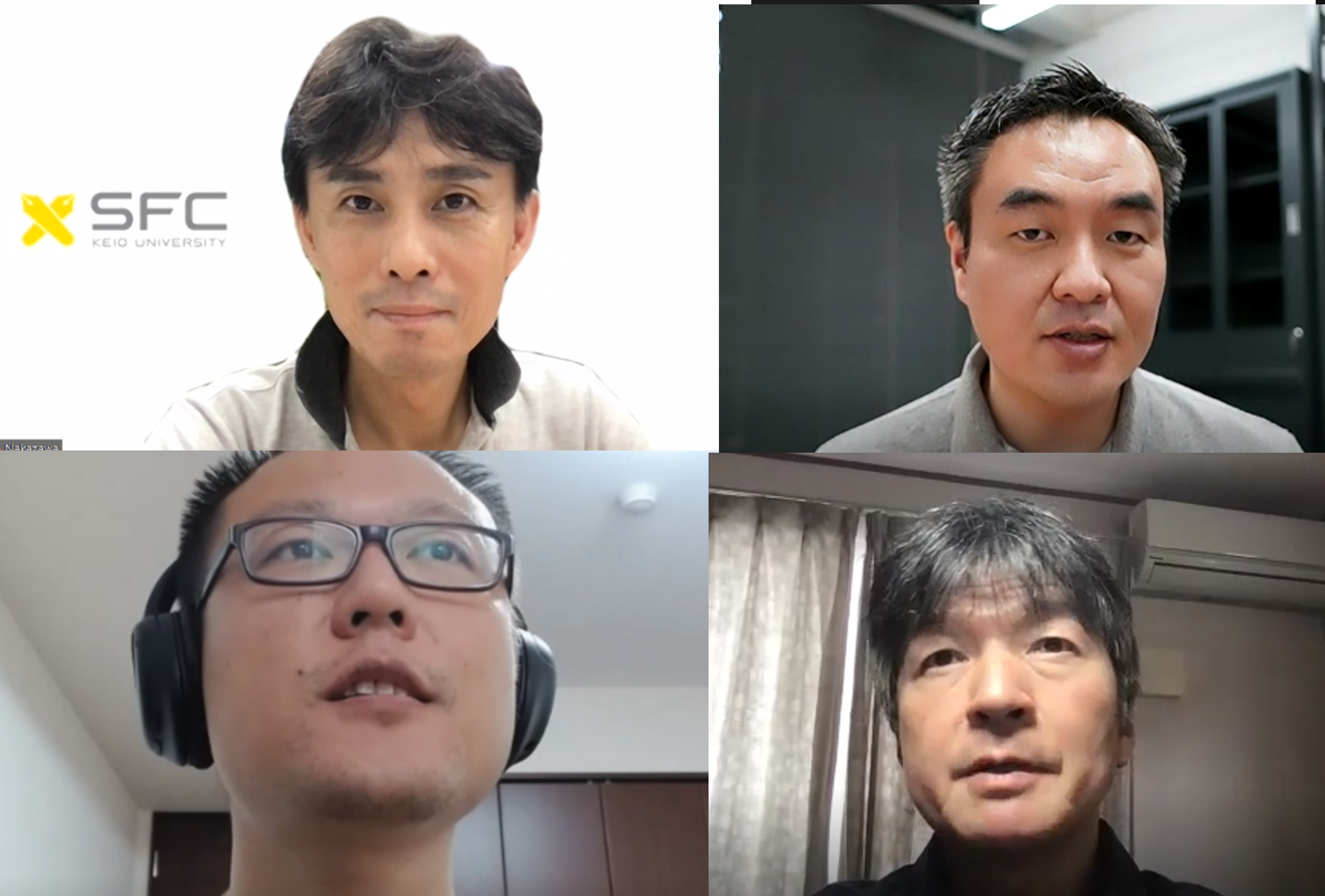For more than 2 years, Keio University, in Japan, has been a key member of the M-Sec consortium, supporting the development and testing of a technology that intends to support our cities to become smarter and, at the same time, more cyber secure. Meet the team and work behind Keio University, their role in the M-Sec Project and where will they go next
We spoke with Professor Jin Nakazawa to know more about Keio University’s role in the Project.
1. Professor, thank you so much for agreeing with this interview. Please briefly present yourself and the institution you work at.
I am Principal Investigator in Keio University for the M-Sec Project. I have over 20 years of academic experience in ubiquitous, dependable, smart computing systems. Among the diverse research topics that I have been working on, the smart and mobile sensing technology is the major (recent) interest of mine. Smart and mobile sensing involves sensors including cameras and microphones attached to cars, whose data are processed at the edge side with AI.
2. Why have you and Keio University decided to join the M-Sec Project?
Keio has a proud history as Japan’s very first private institution of higher learning, which dates back to the formation of a school for Dutch studies in 1858 in Edo (now Tokyo) by founder Yukichi Fukuzawa. Since the school’s inception, the students of Keio have risen to the forefront of innovation in every imaginable academic field, emerging as social and economic leaders. Based on the knowledge and experience of outstanding faculties, today’s Keio students strive to develop the leadership qualities that will enable them to make valuable contributions to tomorrow’s society.
Keio had been working on deployment of smart and mobile sensing platform and participatory sensing platform, seen in Use Case 3 and 4 respectively, in Fujisawa city in Japan. These platforms will be social infrastructure to collect city data that can be leveraged to make citizens life better. However, due to the lack of security guarantee, and to the increase of attacks to IoT devices, the platforms were facing the major threats. Keio joined the M-Sec consortium to strengthen security of these platforms.
My main interest for joining the M-Sec consortium was to build the concept of multi-layered security technologies for IoT systems and devices. Since an IoT system consists of multiple different components ranging from the edge devices, cloud systems, and end-user applications, I have been interested in feasible approaches to achieve security in the end-to-end manner.
3. Can you also present the team that works with you for the M-Sec Project?
The Keio team consists of professors, researchers, students (graduate and undergrads) and staff. Among professors and researchers, Tadashi, Akira, and Yin are the key persons to address research challenges in the project. Tadashi Okoshi is an Associte Professor in Faculty of Environment and Information Studies in Keio. Akira Tsuge and Yin Chen work for Graduate School of Media and Governance in Keio as Project Lecturers. They are experts on sensing systems, wireless networking, and ubiquitous computing.
4. What has been the main role of Keio University at the M-Sec Project and have you been able to achieve all you have set for? What were your and your team’s main challenges?
Keio leads pilot studies held in Japan. Smile City Report is one of the pieces of software build for the M-Sec project, which enables users to submit their report about a city ensuring the reporters privacy, also allowing them to post pictures to M-Sec marketplace. Fujisawa automotive sensing platform is another system Keio is contributing to. The purpose of the platform is to collect regional data, such as environmental data, for further utilization towards making cities smarter. In all the role of Keio in the M-Sec Project is integrating technical components developed by other partners to deployable systems.
We are currently working hard to integrate components to the aforementioned systems being used for the M-Sec pilot studies. One of the major challenges we have faced is heterogeneity of Android devices. Smile City Report is implemented on both Android and iOS devices, among which Android devices are so diverse that behavior of the software is not easily predictable.
5. Looking back on what you and your team have done in the scope of the M-Sec Project, what are your main takeaways?
Through our activity in the M-Sec project, we have been communicating with partners across EU&JP, and found out that there are a number of security issues in IoT system. Though it was clear at the beginning of the project, IoT system is not simply a system, but it is a complicated and open system of systems whose constituents dynamically change. So our main takeaway is that such the IoT system should be implemented based on the notion of zero-trust.
6. With only a few months until the end of the project, on what major developments do you and your team still need to focus? Do you feel confident?
We are quite confident that we will successfully develop the bridge between Keio components and the M-Sec Marketplace. The bridge between the secure mobile sensing platform and the M-Sec Marketplace has already been established. The fact that the data can be put on a market to besold to others is the key to extract more data from the world in an automated, distributed, and cooperative manner.
7. Did you find this experience of participating in an EU-JP partnership rewarding?
EU&JP partnership is quite unique in that we faced cultural difference of citizens in different countries via the use of software. Just regarding privacy issue, EU and JP have different laws, the ratio between Android vs iOS smartphones is opposite, and citizens interests to real world things are different. Such difference had to be affected to the design and implementation of the software. Without this partnership, we could have not had such the experience.
Keio is working on a number of projects related to hyper connected smart cities, where M-Sec platform can be leveraged. It will keep working on those and similar projects in the future. We are planning to leverage the M-Sec platform or part of it in further projects.


